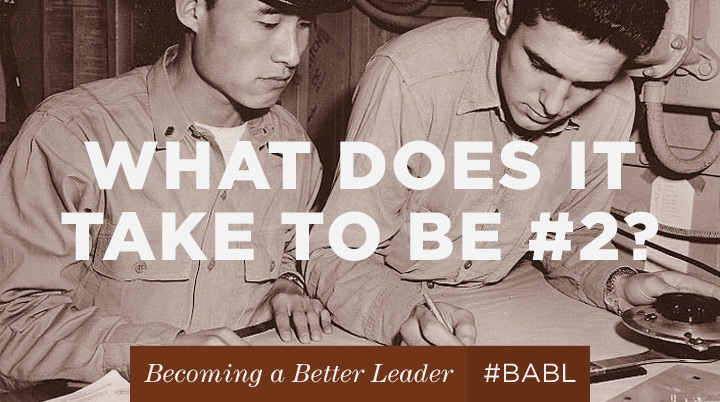Latest
-
Objections to the Christian Faith from the Unchurched and De-Churched
 Tue Dec 02, 2014
Tue Dec 02, 2014
by Resurgence -
Craig Groeschel: We Innovate for Jesus
 Tue Oct 14, 2014
Tue Oct 14, 2014
by Resurgence -
Mark Driscoll: Revelation
 Tue Oct 07, 2014
Tue Oct 07, 2014
by Resurgence -
RESURGENCE LEADERSHIP #034: JOHN PIPER, WHY I TRUST THE SCRIPTURES, PART 2
 Tue Sep 30, 2014
Tue Sep 30, 2014
by Resurgence -
Resurgence Leadership #033: John Piper, Why I Trust the Scriptures, Part 1
 Tue Sep 23, 2014
Tue Sep 23, 2014
by Resurgence

Archives
What does it take to be #2?

Who’s best suited to serve the #1? Someone who has been in that spot before.
What makes a great executive pastor?
This is a question I have been asked often by church pastors looking for help finding an executive pastor. In response to these questions, many ideas come to mind.
When we look to great leaders, the perfect model is Christ Jesus. Jesus, the greatest #1 to ever be born on earth, came to this earth to serve, not to be served (Matt. 20:26–28). Jesus demonstrates coming and serving others instead of demanding people serve him.
First and foremost, an executive pastor must understand Jesus’ servant heart and love and serve others instead of being served. Of course all Christians are called to this kind of service, but if you’re able to find an executive pastor who deeply and personally resonates with servant leadership, you have the building blocks of a strong leader.
12 things a former #1 gets
After finding a man that follows Jesus in this way, I believe it is best to look for a guy who has served as a #1—someone who has served as the leader in their business or organization. There are 12 reasons why I believe this is the case:
- You understand the weight of the phrase “the buck stops here.” You are #1, then you know that if all else fails, you must deal with the problems.
- You understand that problems roll uphill in an organization, not down.
- You appreciate the weight of making decisions and you will not second-guess decisions because you have been there.
- You know mistakes will be made by the #1 and understand that mistakes are opportunities to learn, not reasons for division.
- You know how important it is that the full team sees the same vision. Division comes in an organization when different leaders see different future visions of the organization or two visions.
- You know how important it is for others to have your back and not gossip, slander, or tear you down.
- You know how important it is to have leaders around you who give good advice, not just what you want to hear.
- You will not covet the title of #1. You know that it’s not much fun and comes with incredible responsibility.
- Many times you have started a church, business, or other organization. You know how difficult it was during the early days and how much sacrifice it took from the leader and his family.
- You respect the #1 and the dedication the leader has to the organization, business, or church.
- You know the greatest things a second-in-charge (2IC) can give are love, respect, trust, and loyalty.
- You will never quit the mission, give a two weeks’ notice, or leave the #1 unable to continue. It is all about how you leave an organization. Twenty years of faithful service to a #1 can be undone by leaving poorly.
I have worked with many great leaders over the last 20 years. Just because a person is a good leader, doesn’t mean they will be a good 2IC. This is what makes finding a good executive pastor so hard.
The crucible of experience
He doesn’t only need to be a great leader—he needs to be a great 2IC. One of the best indicators I have found for this is asking, “Has this guy ever felt the weight of a #1?” I believe this is something that needs to be experienced and not learned by reading a book.
This thinking allows you to understand the biggest critics of leadership. In my experience I have noticed that many critics have never been a #1. They have never lead an organization, felt the weight of responsibility, or taken into consideration all of the different variables that go into making decisions. I have found that current or previous #1’s have a tendency not to publically criticize leadership when they don’t agree with their decisions. They have experienced leading an organization and felt the weight of the decisions they have made.
This is the difference between a #2 who has served as a #1 and one who has not: They have a healthy perspective on leadership that has been proven through the crucible of experience. If you understand what it feels like to be a #1, then your ability to serve as a #2 takes a whole new light.